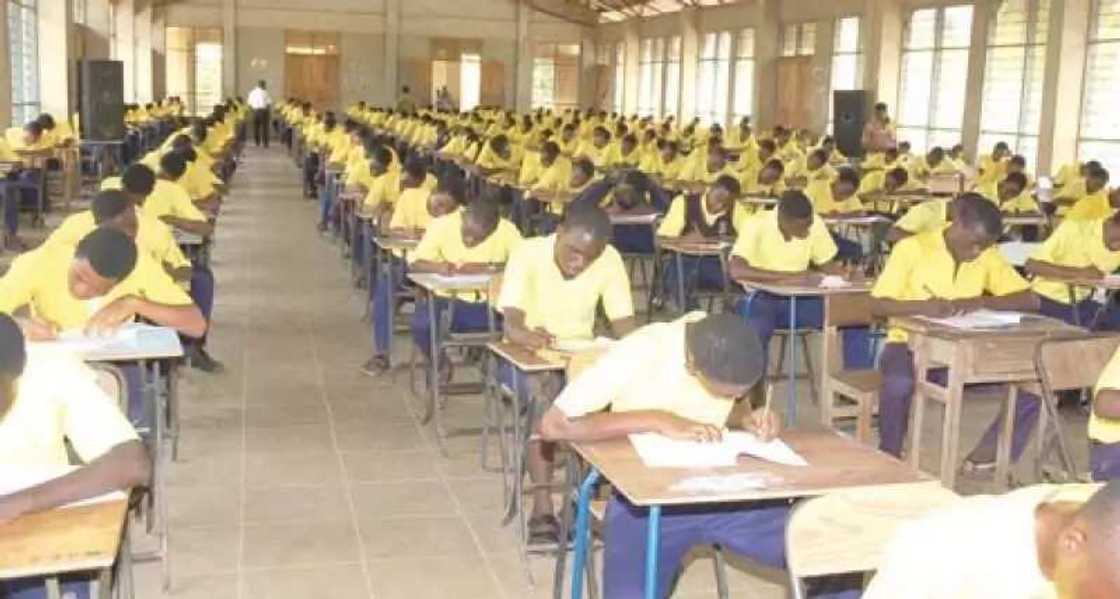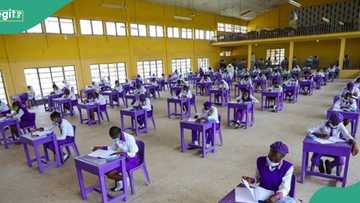Mass Failure in 2025 WASSCE: Stakeholders Blame Systemic Challenges and Exam Malpractice
- The 2025 WASSCE results revealed a dramatic decline in student performance with only 38.32% securing five core subject credits
- Education stakeholders blamed systemic corruption, poor oversight, and rampant malpractice for the mass failure
- Calls for urgent reforms and a national education emergency grew amid fears over the future of Nigeria’s academic standards
Stakeholders in Nigeria’s education sector have attributed the mass failure recorded in the 2025 West Africa Senior Secondary Certificate Examinations (WASSCE) to entrenched systemic challenges, including widespread malpractice and poor oversight.
The West Africa Examination Council (WAEC) had earlier disclosed a significant drop in performance compared to the previous year.

Source: UGC
Of the 1,969,313 candidates who sat for the examination across 23,554 schools, only 754,545 candidates—representing 38.32 percent—obtained a minimum of five credits in core subjects, including English Language and Mathematics.
This marks a stark contrast to the 2024 results, where 1,332,089 out of 1,805,216 candidates achieved the same benchmark, representing a 72.12 percent pass rate.
Exam ethics founder decries corruption and malpractice
In separate interviews with the News Agency of Nigeria (NAN) in Abuja on Thursday, education advocates and non-profit leaders expressed concern over the deteriorating standards.
Ike Onyechere, founder of Exam Ethics Marshall International (EEMI), described the 2025 results as “very poor” and said the decline was anticipated due to logistical failures and systemic corruption.
“These logistical issues, as critical as they were, were ignored during and after the exams. No person talked about how those kinds of issues should be addressed in terms of how they affected the performance of those students,” he said.
Onyechere cited persistent power outages and inadequate supervision during the exams as contributing factors. He also condemned the growing dependence on malpractice rings, alleging that many students no longer study for their examinations.
He criticised the lack of transparency in WAEC’s annual malpractice reports.
“Every year, WAEC releases statements saying schools were involved in malpractices, but where are the names? Who are these schools? Who are the supervisors? They recycle these supervisors and protect them,” he said.
Government crackdown on miracle centres
In May 2025, the federal government issued a directive targeting so-called “miracle centres”—facilities notorious for aiding examination malpractice.
The directive mandated examination bodies to clamp down on such centres, with the Joint Admissions and Matriculation Board (JAMB) leading the effort. WAEC, NECO, and NABTEB were instructed to replicate sanctions on the same centres.
The directive stated that any centre found guilty would be derecognised for a period determined by the relevant examination body.
Call for national education emergency and reforms
Jekayinfa Olatunji, a fellow at the National Mathematical Centre (NMC), called for urgent reforms, including a national education emergency roundtable and improved exam preparation strategies.
“In 2024, no fewer than 1,805,216 students sat for WAEC exams, out of which 1,332,089 students passed at least five subjects, including English Language and Mathematics, at credit level and above, representing 72.12 per cent pass,” he said.
“Ordinarily, the results may seem good, but what about the remaining 27.88 per cent who didn’t get five credits with English Language and Mathematics? The students might not have progressed in their education that year.
“Now, the worst has happened in 2025. Out of 1,969,313 students who sat for WASSCE exams, only 38.32 per cent passed five subjects, including English Language and Mathematics.”
The sharp decline in WASSCE performance has reignited debate over the integrity and sustainability of Nigeria’s secondary education system.
Stakeholders have urged authorities to confront the root causes of failure and implement lasting reforms to restore confidence in national examinations.

Source: UGC
WAEC: Nigerian students reject English language result
Legit.ng earlier reported that following the release of the 2025 West African Senior School Certificate Examination results, candidates expressed their grief over the grades, especially regarding the mass failure of the English Language.
Legit.ng gathered that the West African Examinations Council, in a statement on Monday, August 4, announced that only 38.32% of candidates who sat for the May/June 2025 examinations passed at the credit level in five subjects, including English and Mathematics.

Read also
WASSCE 2025: Nigerians fire back at WAEC over portal glitch, question credibility of results
WAEC blamed the students' poor performance on factors such as inadequate student preparation, examination malpractice, and technical glitches.
Proofreading by Funmilayo Aremu, copy editor at Legit.ng.
Source: Legit.ng



